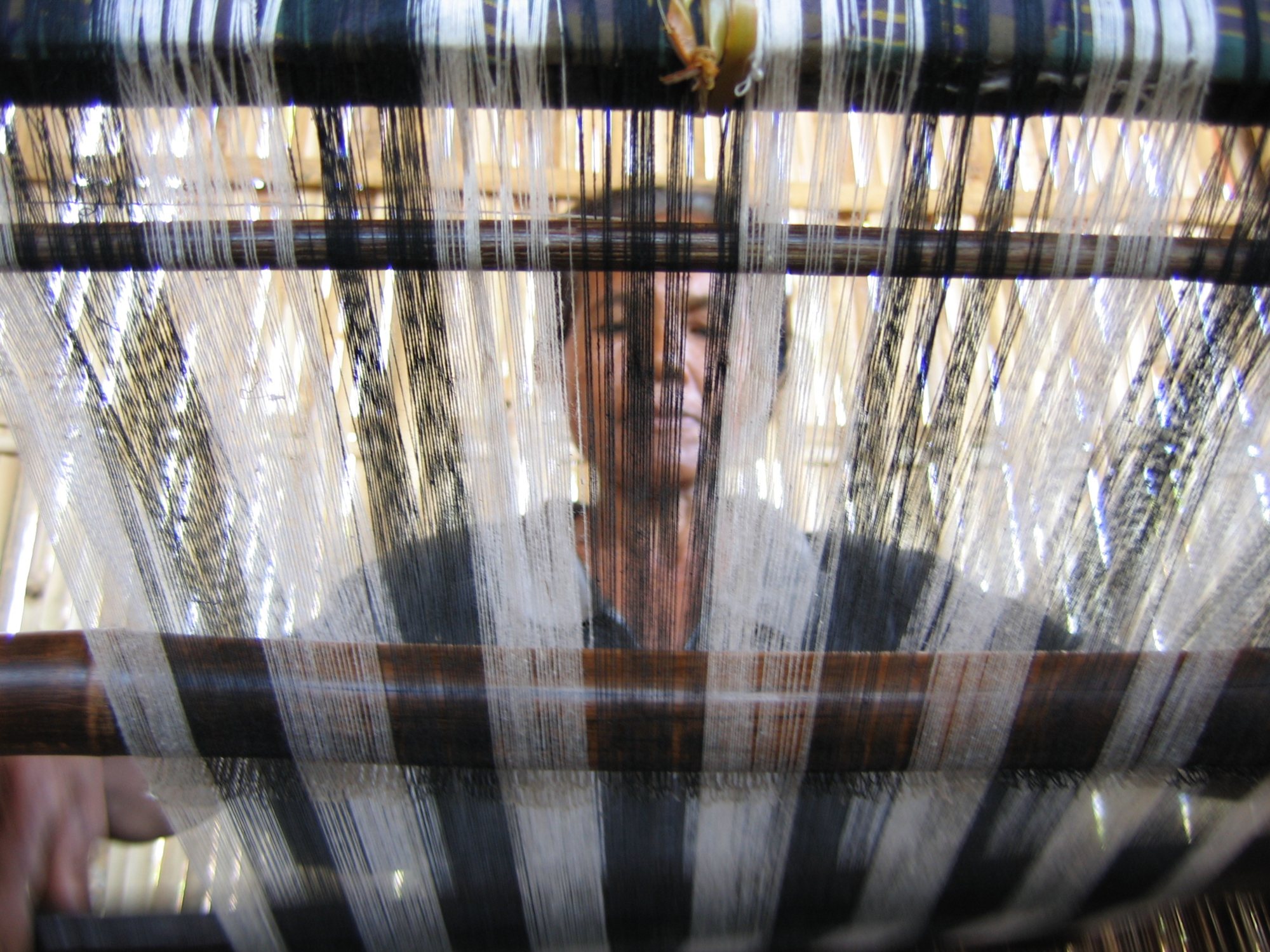Gone are the days when people thought of crafting as something that’s just within the purview of their grandmothers and preteens at summer camp. In a world where mass-produced products — and the throw-away culture that they encourage — are no longer a la mode, the phrase “hand-crafted” has become the big buzzword for industries spanning food, fashion, and design.
We love Bali not just because it’s home to amazing spas, budget-friendly activities, and eco-oriented brands. It’s also a center for artisanship.
Weaving, pottery, and basketry are just a few of the old-school skills that are getting a second chance to shine — and here in Bali, where dexterity runs in the blood, a new generation of designers, artisans, and eco-entrepreneurs are bridging traditional techniques with modern aesthetics.
Here’s our edit of the local makers that you should be checking out right now.
Threads of Life | Hand-woven textiles
Threads of Life’s textile products are anything but “new generation,” but, as they’re one of the major forces behind the recent reinvigoration of love for almost-forgotten local crafts, we felt it necessary to give them a shout-out here. And besides, their gallery in Ubud is Bali’s ground zero for fair-trade island textiles. They tell us they stock around 250 different types of traditional textiles from 50 communities across Indonesia, which makes it a great source for people who are just starting to learn about the country’s craft culture.
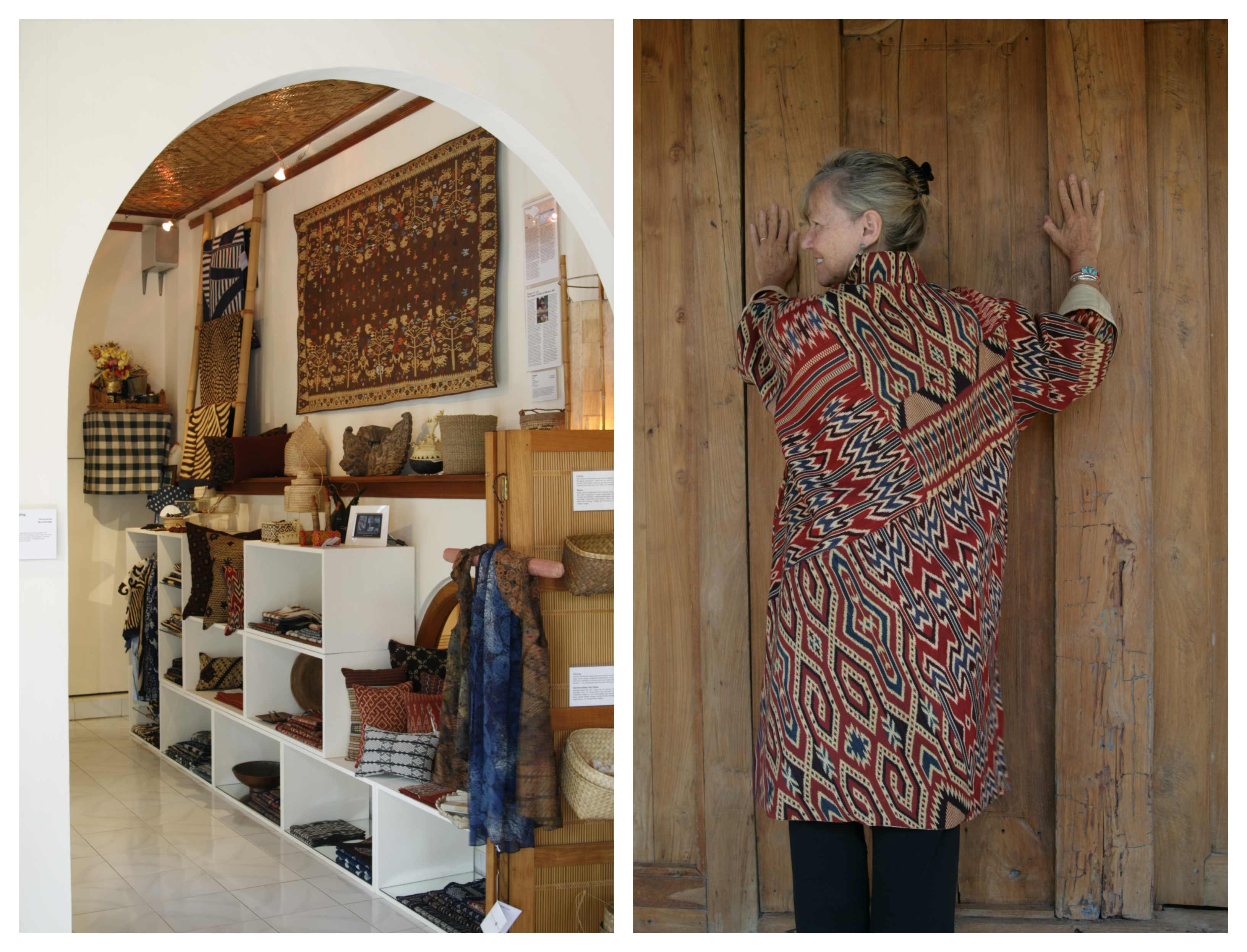
Every piece is a one-off, naturally dyed, and hand-loomed by ladies who grew up honing the techniques to make them. Cushion covers, jackets, clutch bags, and pillow cases are among the crafty keepsakes available, or you can just buy textiles by the length. There’s a nice variety within the selection on offer, too, with ceremonial styles and motifs from Bali, Java, Sumba, Sulawesi and Timor on display.
Prices range from IDR700,000 (US$49.80) for a scarf-sized piece, up to (gulp) IDR60,000,000 (US$4,269) for the more unusual or rare styles, though most of the work is in the IDR2,000,000 to IDR10,000,000 range (US$143 to US$713). A third of the retail price is passed back to the weaver for her work, too — props for that.
FIND IT:
Threads of Life
Jl. Kajeng No.24, Ubud
Personal by Sasti | Handmade lace intimates
Bali-based designer Sasti Puntodewo started making her own bralettes back in 2015 because she couldn’t find a commercially made bra that provided the perfect fit. Her friends soon cottoned on to her new skill, and slowly, making lingerie for her female friends turned into a full-on business and brand.
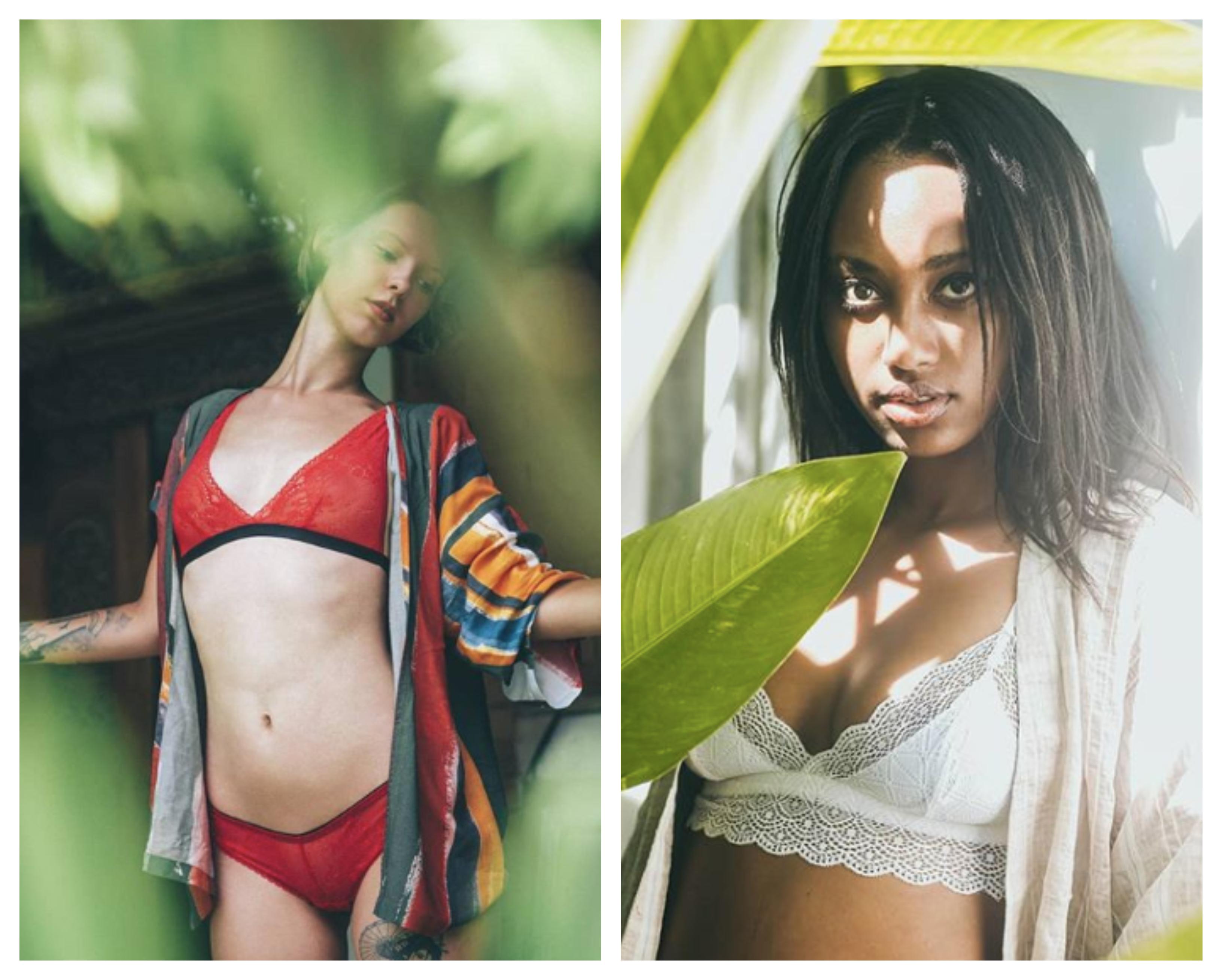
Her pretty lace intimates are a world away from those padded, porno-look push-ups that the chain stores seem to favor these days. Sasti’s are crafted from lace offcuts, meaning that each bra is different from the next, and paired with French panties to match.
Note that there aren’t any underwire bras in the collection — this might be great for petite ladies, but perhaps not as flattering for bustier women who prefer the added support. Prices start at around IDR250,000 (US$17.70).
FIND IT:
ToKo concept store
Jln Danau Poso no 51A, Sanur
www.etsy.com/shop/Personalbysasti
Àshworks | Concrete homewares
Storytelling is central to the Jakarta-based brand, Àshworks. The sculptor/painter design duo behind Àsh takes themes like volcanoes, coral reefs, or “blooming,” and adds a good helping of artistic license to creates concrete trays, coasters, vases, and bowls. Yes, they’re made of concrete — but you’d be surprised by how beautiful the material can be when wielded the right way.
Production consists of hand-molding, adding color pigments as required, drying, sanding, then coating. What they end up with is some stunning original pieces — we particularly love the marble-effect trays.
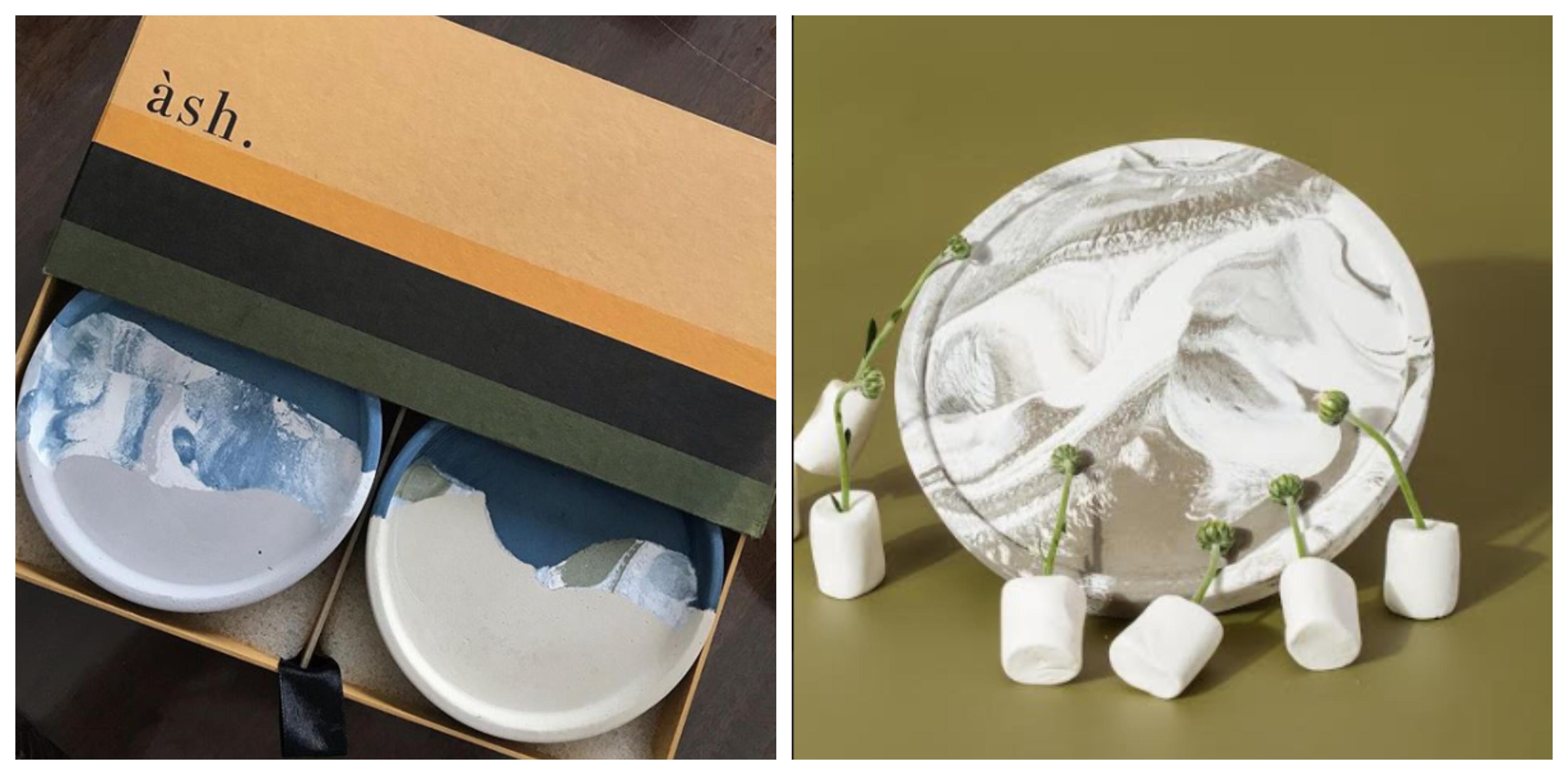
Starting this year, however, Àsh has decided to move into ceramics — concrete is cool, but it’s not food-grade, you see. “To Bloom,” the brand’s Spring/Summer 2019 collection, marks its debut in clay. With a color palette of egg-yolk yellows, pastel pinks, and khaki greens, the girls behind Àsh tell us that “To Bloom” is all about personal growth and positivity.
Hit up their newly launched web store to peruse collections old and new. Expect to fork out between IDR100.000 and IDR400.000 (US$7 and US$28) per item.
FIND IT:
Àsh’s pieces are available on its online shop here.
Olenka | Fashion
A mélange of out-there ‘80s prints and modern cuts, Olenka’s clothes are the work of homegrown talent Dewi Wangsa. Her playful ready-to-wear pieces pack more quirk than almost anything else you’ll find in Bali, though some credit must go to her younger sister, who lends a hand with those stand-out patterns.
As well as daywear, Olenka has a cute swimwear collection, too. You’ll find both onesies and bikinis — the motifs are retro and the fits are flattering (butt cheeks fully covered, thank goodness). Dewi says she only uses eco-certified Italian fabrics with UV protection and resistance to chlorine and body lotions. To us, that peace of mind is worth the bump in price — the average piece here is priced at approx. IDR1,6 million, or US$115, each.
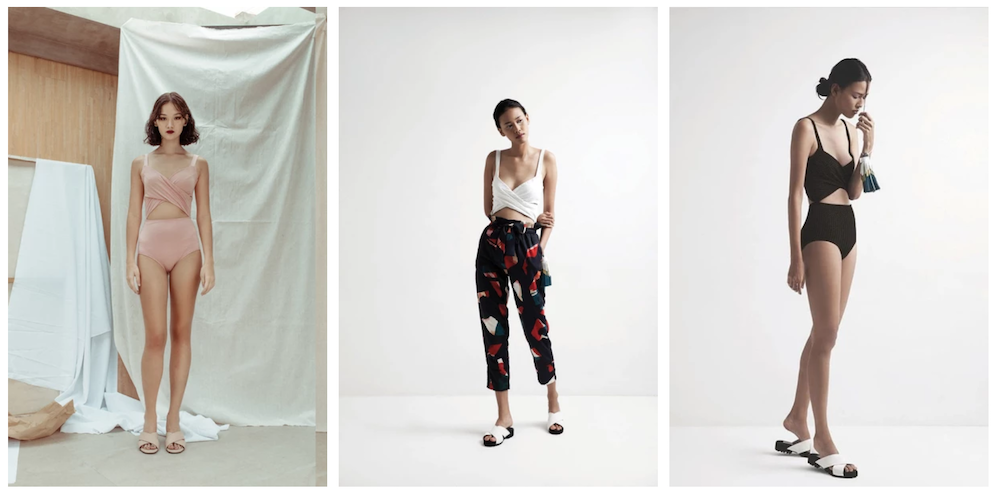
Dewi is currently working on something special with French/Indonesian painter Ines Katamso, so expect to see the first of two collaboration collections launched in the coming months.
FIND IT:
Olenka
Jl. Kayu Aya, Seminyak
www.olenkathelabel.com
Amygdala | Bamboo homewares
Amygdala makes the kind of lamp shades, plant pots, laundry baskets, and chairs that you’d see in the pages of a design magazine. Everything is made from sustainable bamboo from Garut in West Java under the guidance of founder, Harry Mawardi, a Bandung designer who has won national awards for his work.
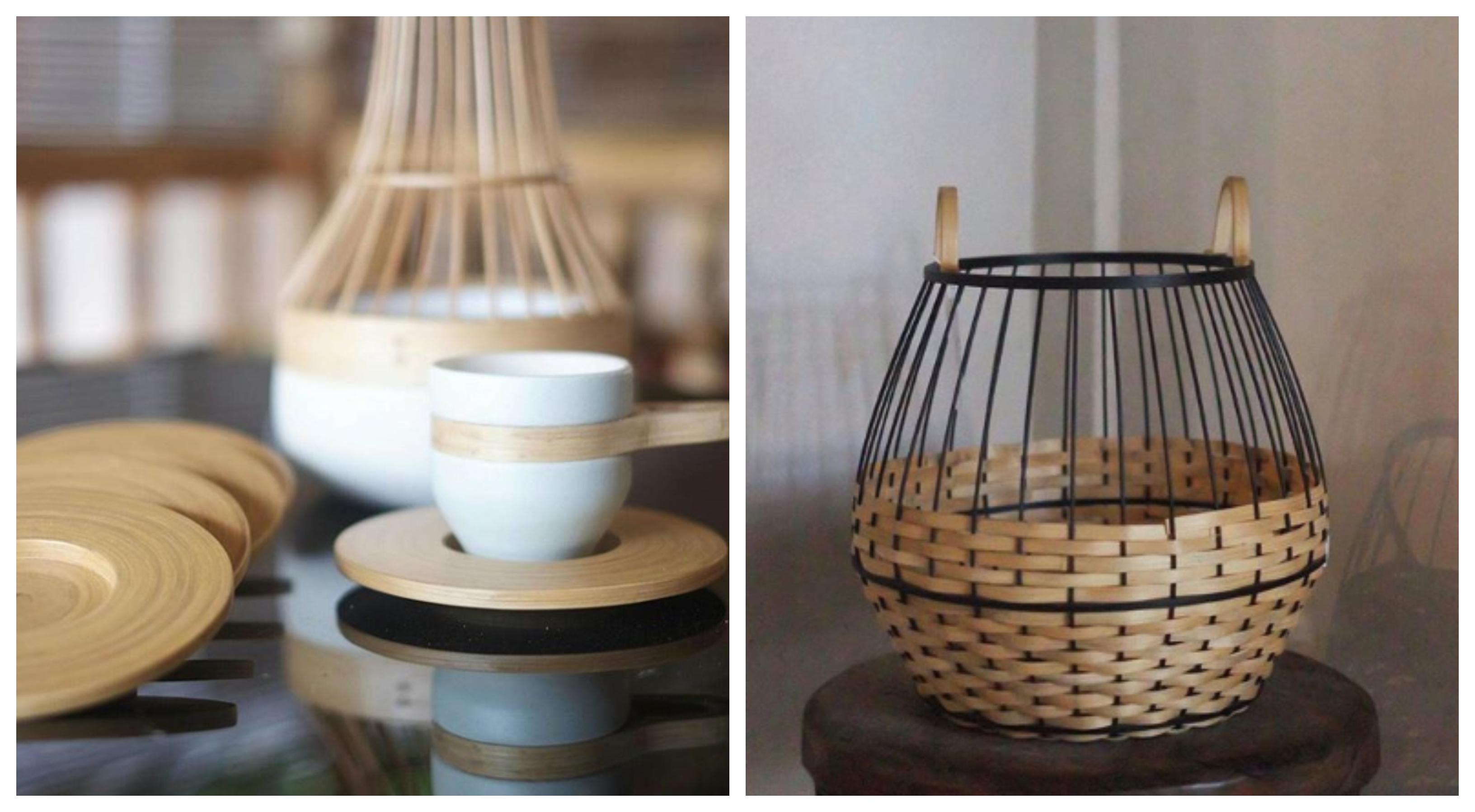
What’s even more special about Amygdala’s products is the story of the people who make them. Hailing from Selaawi, they’re former craftspeople of the bamboo bird cages that made the region famous in its heyday. Due to a lack of demand over the last five years, however, they had to find work elsewhere — until they were re-enlisted by Mawardi for Amygdala.
An Amygdala original will set you back between IDR300,000 and IDR2,750,000 (US$31 to US$196).
FIND IT:
ToKo concept store at Rumah Sanur
via info@amygdalabamboo.com
Sekarputri Sidhiawati | Ceramic art
We heart the whimsical stoneware pieces of Jakarta-born ceramics artist Sekarputri Sidhiawati (Puti). A lot.
Sure, mermaid motifs and idiosyncratic shapes aren’t for everyone, but there’s no doubt that this lady has imagination when it comes to creating homeware.
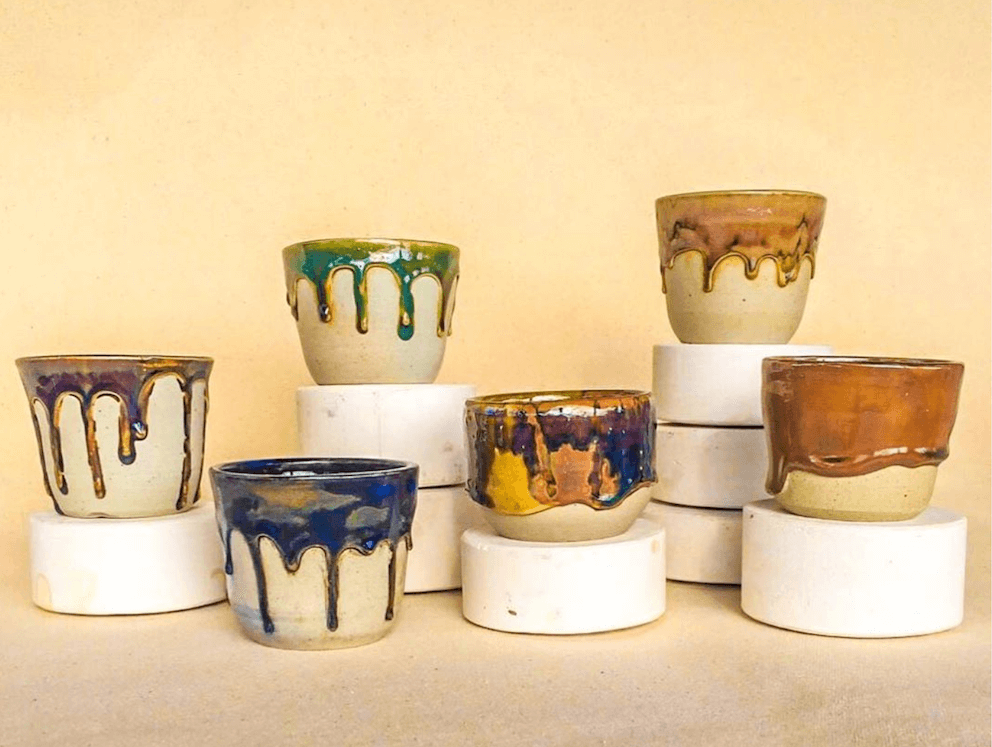
Puti hand molds each piece at her studio located within the rice fields of Tegallalang, which means that no two creations are the same. Her mermaid spoons are her signature, and she’s added mermaid-inspired cups, figurines and plates to the collection.
The pieces in her collection may lean on the side of art rather than practicality, but let’s face it, you buy these because you love the design — not because you need new dinnerware. Prices range from IDR50,000 to IDR1,000,000 (US$3.50 to US$70.80).
FIND IT:
Toko Pasar-Pasaran
Jl. Kayu Cendana, Seminyak
or via @artaderau
Indosole | Upcycled flip flops
If you live in Bali, then you’ve probably already heard of Indosole, the footwear brand that blends the eco-conscious with the style-conscious. Their vegan-friendly flip flops are fashioned from old tires salvaged from scrap heaps, gutters, and garages across the island.
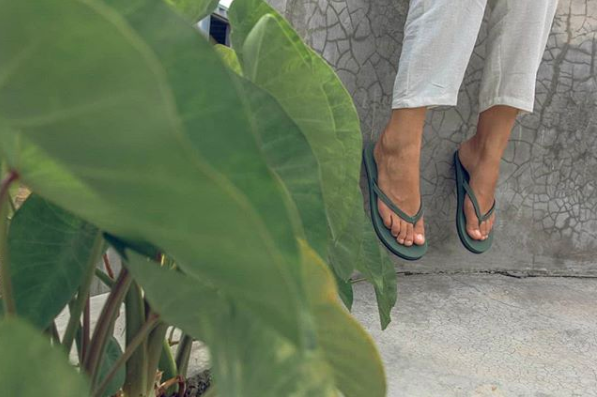
Design-wise, they keep things simple and plump for natural hues. And on top of men’s and women’s flip-flops, they ply cool canvas beach shoes, tote bags and T-shirts, which are all ethically produced. You can pick up a pair from around IDR495,000 (US$35).
FIND IT:
Indosole
Jl. Pantai Batu Mejan, No.69, Canggu,
www.indosole.com
Du’Anyam | Basketry
You’ll sleep well after buying a Du’Anyam piece. The Bali-based social enterprise has found 1,000 weavers from villages in Flores, Kalimantan, and Papua to create wicker homewares with techniques that are as old as the hills. Their selection of baskets, bags, and pouches is authentic in the true sense of the word, showcasing dried Indonesian palmyra (palm) leaves that have been woven into beautiful, functional homeware pieces.
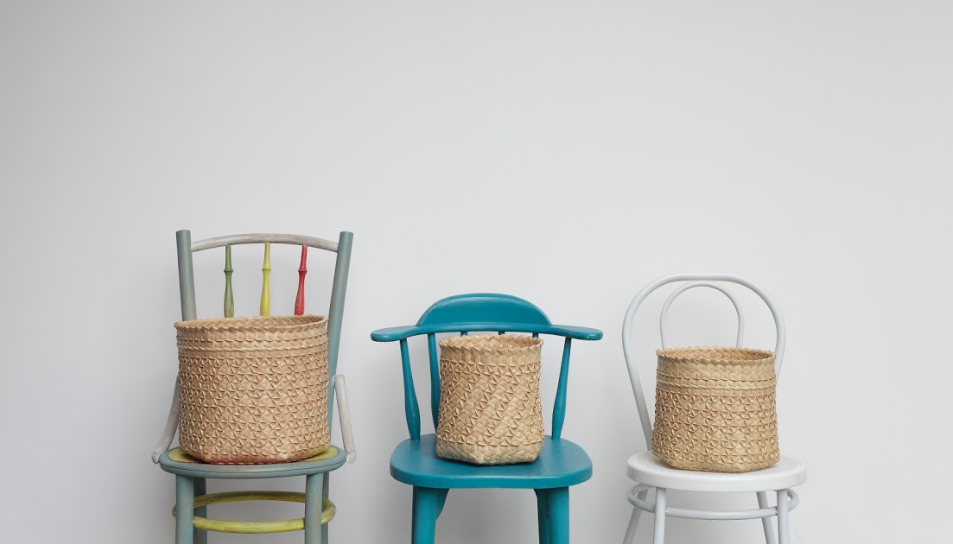
Sobe baskets from Flores are a Du’Anyam signature, and they’re also the most fiddly to make. We dig their more modern stuff, like the Du’Anyam x Impromptu Harper crossover bag (IDR425,000/US$30.30), made from dyed Palmyra leaves and finished with leather in Jakarta.
FIND IT:
Du’Anyam pieces are available on its online shop here.
Cover image: a weaver in Seraya, Bali, making the island’s famous chequered poleng textile. Photo: Threads of Life
More awesome Bali lifestyle guides
Best swimwear in Bali: Where to find bikinis, one-pieces, wetsuits, boardshorts, surf gear and more
Tested: What it’s like to live and work from Outpost’s Canggu coliving space
A first look at Alila Manggis’ newly launched luxury yoga retreat in East Bali
Bloomfield: We stayed at this eco-chic boutique hotel in Umalas, but should you?
Spring Spa Review: Here’s what went down in our first-ever facial at Canggu ‘it’ spa
The eerie charm of Taman Festival Bali, an abandoned theme park turned graffiti artist’s dream
